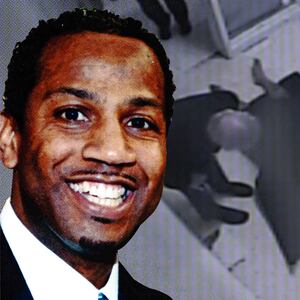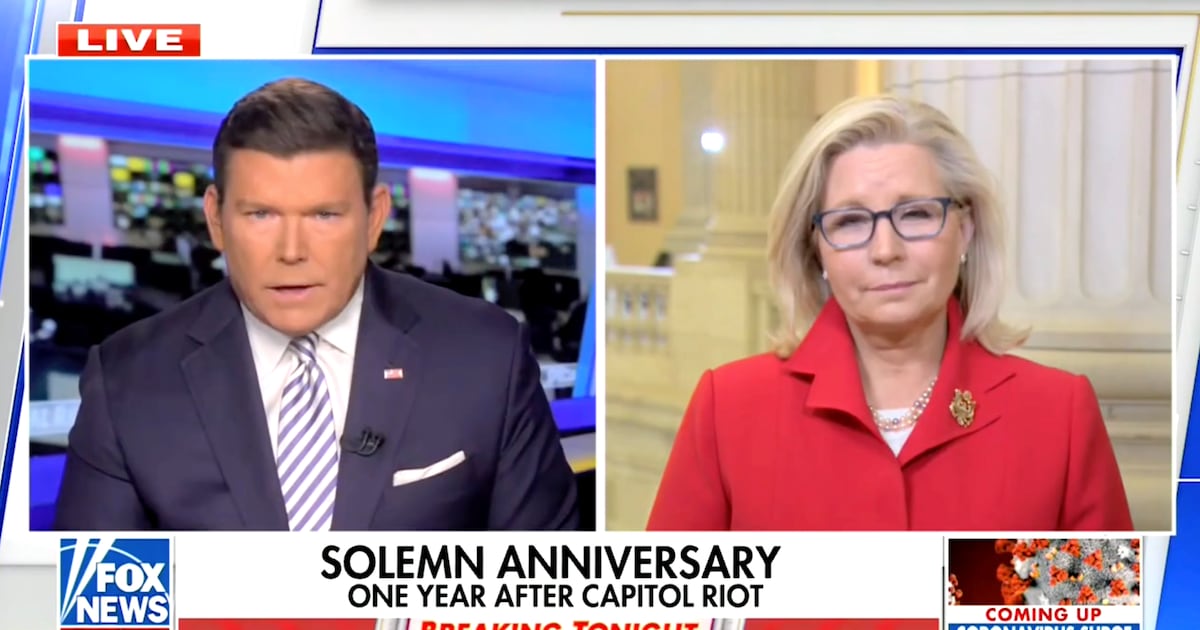Stormy Daniels’ new attorney, Clark Brewster, is known for defending Oklahoma cops in civil rights lawsuits, and representing a wealthy volunteer deputy whose fatal shooting of an unarmed black suspect put the national spotlight on the Tulsa sheriff’s office.
On April 2, 2015, 73-year-old Bob Bates joined Tulsa County deputies on a gun-buy sting operation. While officers handcuffed Eric Harris, 44, Bates fired his gun and could be heard on body camera footage saying, “Oh! I shot him! I’m sorry!” The volunteer deputy said he meant to fire his taser when he aimed at Harris.
Days later, when Bates was charged with second-degree manslaughter, Brewster went on CNN to justify the incident, which was one of several police-involved shootings that gained media attention amid Black Lives Matter protests.
ADVERTISEMENT
Asked about Bates’ donations to the Tulsa County Sheriff’s Office, which were under scrutiny by the press, Brewster replied, “Well, I mean, the fact that he’s been benevolent to the department shouldn’t be criticized. It should be applauded.”
“He’s a person that has stepped up not only with his time, but his benevolence. There’s nothing sinister about that,” Brewster said.
On Tuesday, Daniels announced she was splitting with her aggressive lawyer, Michael Avenatti, and had hired Brewster as counsel.
While hardly as brash as Avenatti, the Tulsa-based attorney’s civil and criminal cases have grabbed international headlines over the years.
In June 2006, Brewster represented former judge Donald D. Thompson, accused of using a penis pump in the courtroom and masturbating during trials. He was convicted of four counts of indecent exposure and sentenced to one year in prison.
“This ends an ugly chapter in Creek County history and for the state of Oklahoma,” one prosecutor declared after the verdict, the Tulsa World reported.
But, according to the newspaper, Brewster vowed the verdicts were only “round one” and hinted at filing an appeal. “We fought hard against incredible odds,” Brewster said, but “we’re not quitters. We plan to do everything we can to see that this man is treated fairly.”
A decade later, Brewster was busy representing Tulsa deputies and jail staff.
Bates was convicted of manslaughter in Harris’ death in April 2016. During his trial, prosecutors bashed Brewster’s focus on Harris’ criminal history and one assistant district attorney, Kevin Gray, said, “This was the first time I’ve ever felt like the victim was on trial.”
But Brewster told jurors that Bates was “somebody we should be proud of,” in comparison to Harris. “I didn’t write his résumé,” Brewster said of the victim during closing arguments. “He wrote his résumé.”
In a 2016 interview with The Daily Beast, Brewster compared his client’s mistake during the sting operation to that of a surgeon. “People make mistakes every day,” Brewster said. “Somebody makes a decision that causes someone to lose their life, but they’re not prosecuted for manslaughter. It’s a mistake.”
Bates was released in October 2017, after serving less than half of his four-year sentence.
Brewster also represented then-Tulsa sheriff Stanley Glanz in a civil rights lawsuit brought by a woman who claimed she was 17 years old when a corrections officer raped her more than 100 times in a “blind spot” in the county jail. (The suspect was never criminally charged.)
The woman’s attorney, Dan Smolen, argued the alleged rapes occurred because of “systemic deficiencies” at the Tulsa County jail. For his part, Brewster called the woman’s claims a “total shakedown” based on “outrageous lies” and said the idea that an officer would have sex with a minor was “preposterous,” the Tulsa World reported.
In March 2016, a jury awarded the woman $25,000 in actual damages. Brewster told the World he was “pleased that the jury accepted what we thought had happened, which was there was no serious sexual assaults.”
“I am disappointed in the fact that they felt that the jail should be held responsible,” Brewster added, “because this jail acted very responsibly in investigating the incidents and taking prompt action.”
Brewster’s son, Corbin, worked for his firm and helped his father in representing Tulsa law enforcement before becoming the city’s chief public defender.
In another disturbing case investigated by The Daily Beast, the Brewsters defended Sheriff Glanz in a lawsuit over the death of Elliott Williams, an Army vet who died days after arriving in the Tulsa County jail. The jail’s detention officers and medical staff claimed Williams was faking his paralysis and tossed food and water into his cell, but it was out of reach.
Smolen, an attorney for Williams’ estate, presented testimony highlighting systemic problems and racist practices within the agency—including Sheriff Glanz’s use of the word “n*gronoid” to refer to black employees.
Following a three-week trial, a jury awarded Williams’ estate $10.2 million. Brewster had argued the jailers did their job: They didn’t cause Williams’ injuries, which included a broken neck, he claimed, and they weren’t indifferent to the dying man. “We were acting on the information we received,” Brewster told jurors.
The 62-year-old lawyer used his closing argument to express his love for the embattled sheriff. “I’m proud to represent Stanley Glanz, who counsel has pointed out is a friend. I truly love the man, and I’ll stand there right beside him.”
Meanwhile, Brewster represented then-19-year-old Jacob Carl England, who in April 2012 was accused of committing a hate crime with his roommate, Alvin Lee Watts: Shooting five black people at random in Tulsa at four separate locations on Good Friday. Three of the victims died, and community activists said the crime underscored Tulsa’s racial divide.
Police suggested that England wanted to avenge his father’s shooting death by a black man, based on one of his Facebook posts a day before the rampage. At the time, Brewster said it’s “a misplaced premise that he was motivated by any racial hate.”
Brewster recorded a jailhouse interview with England, in which he denied being racist, and gave it to the Associated Press. “I always got along with everybody. It didn't matter what color you (were),” England said.
England and his accomplice faced the death penalty but prosecutors took it off the table as part of a plea agreement. They were sentenced to life behind bars after pleading guilty to charges of first-degree murder and shooting with intent to kill.






